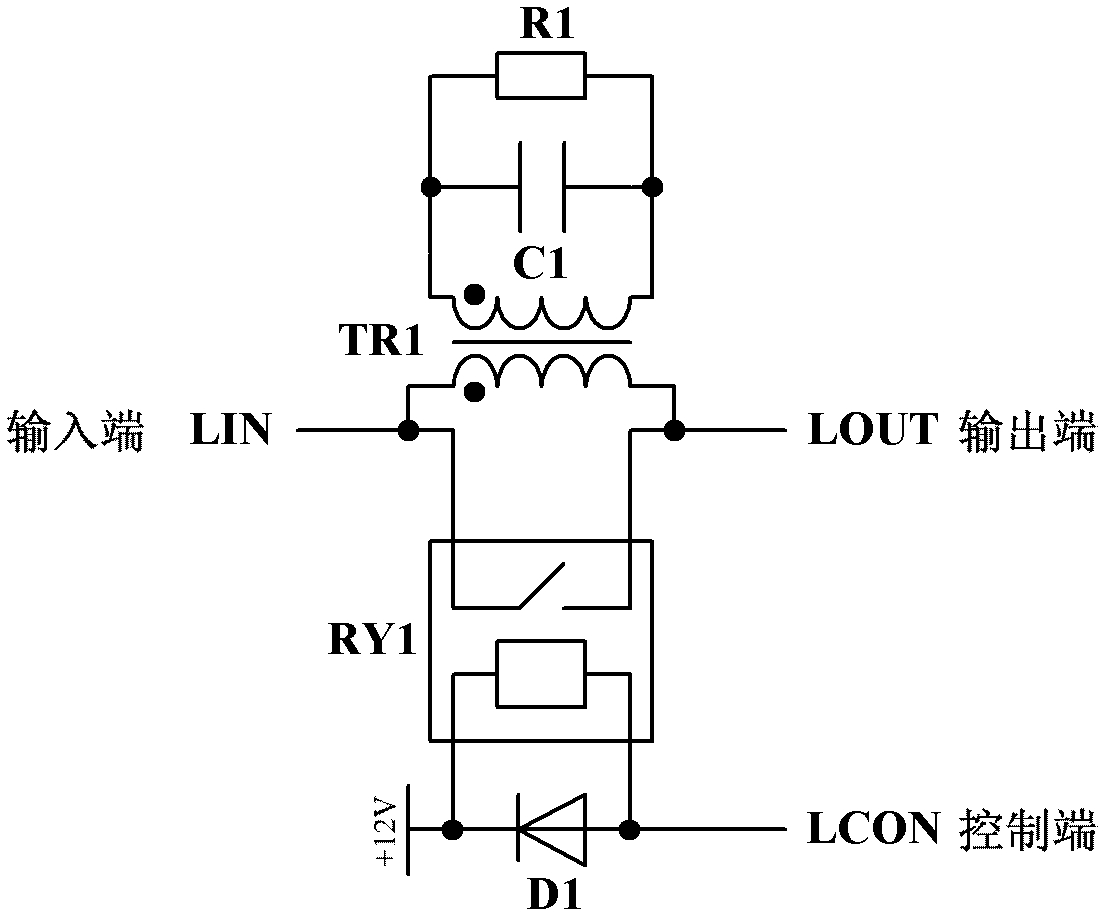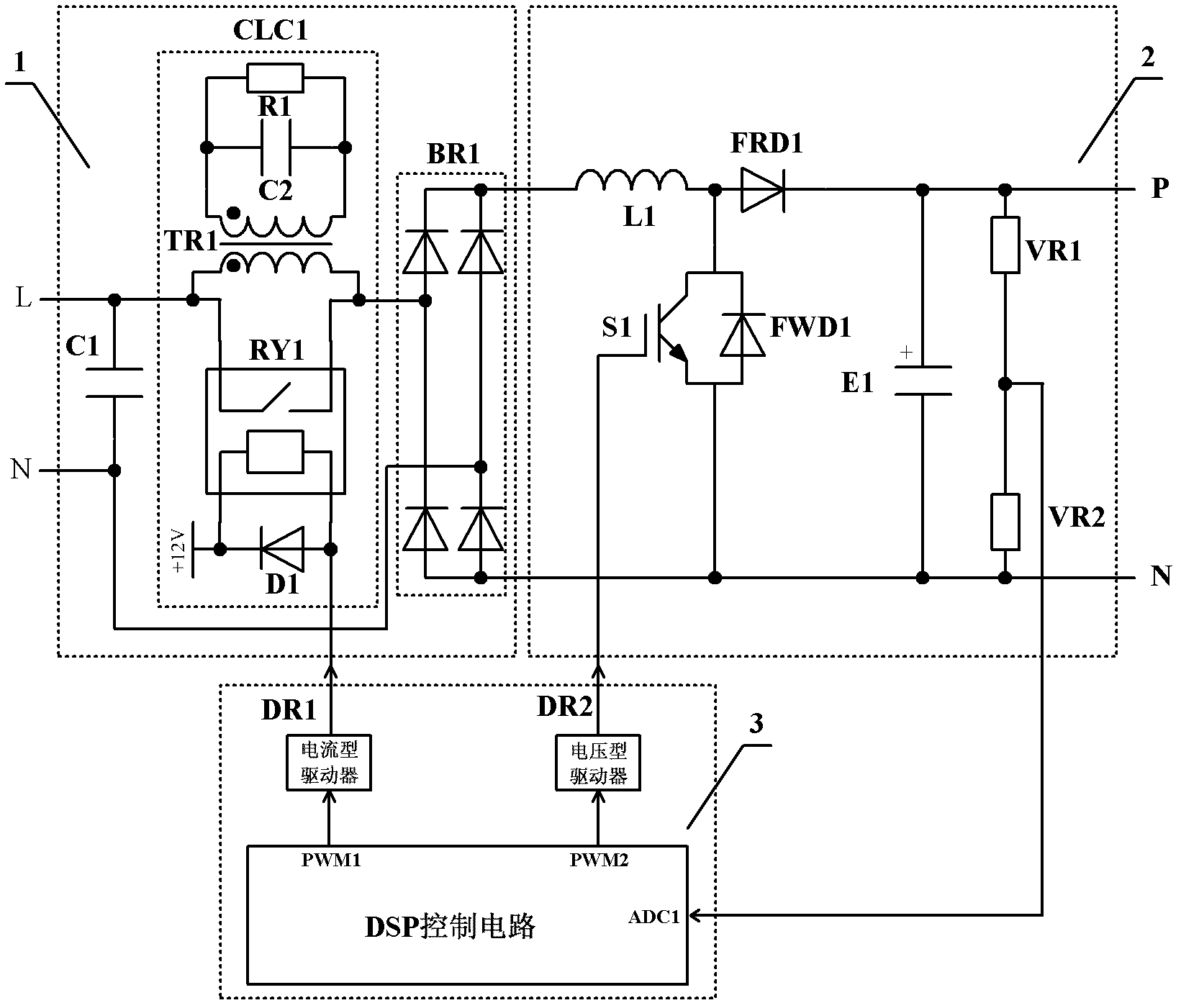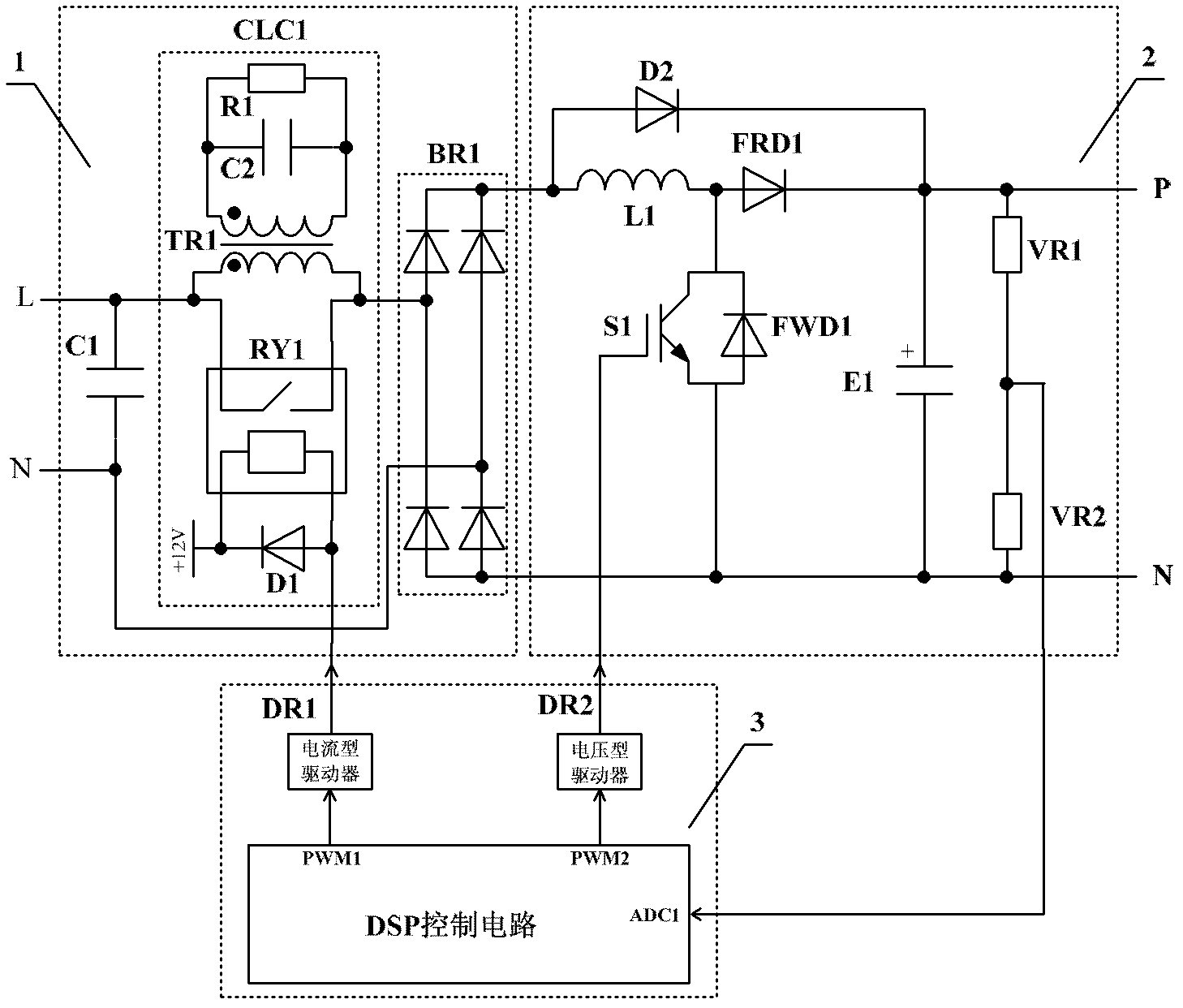Power-on current-limiting circuit and application circuit of power-on current-limiting circuit
A technology of current limiting circuit and rectifying circuit, which is applied to emergency protection circuit devices, circuit devices, emergency protection circuit devices for limiting overcurrent/overvoltage, etc. , current waveform asymmetry and other problems, to achieve the effect of adjustable power-on current, good power-on effect, and improved primary impedance
- Summary
- Abstract
- Description
- Claims
- Application Information
AI Technical Summary
Problems solved by technology
Method used
Image
Examples
Embodiment 1
[0021] Such as figure 1 As shown, this embodiment provides a power-on current limiting circuit, the power-on current limiting circuit CLC1 includes: transformer TR1, resonant capacitor C2, resonant resistor R1, relay RY1, power diode D1 and power supply, wherein: power-on limit The input terminal of the current circuit CLC1 is respectively connected to one terminal of the primary side of the transformer TR1 and the positive pole of the output terminal of the relay RY1, and the other terminal of the primary side of the transformer TR1 is connected to the negative pole of the output terminal of the relay RY1 to form the output terminal of the power-on current limiting circuit CLC1, and the resonant capacitor C2 and the resonant resistor R1 are connected across the secondary side of the transformer TR1, the power diode D1 is reversely connected to the input terminal of the relay RY1, the control power supply is respectively connected to the positive pole of the input terminal of t...
Embodiment 2
[0024] Such as figure 2 As shown, this embodiment provides a figure 1 The application circuit of the power-on current limiting circuit shown includes: a rectification circuit 1, a boost circuit 2 and a control circuit 3, wherein: the output terminal of the rectification circuit 1 is connected to the input terminal of the boost circuit 2, and the output terminal of the boost circuit 2 The output terminal is connected to the control circuit 3 , the control terminals of the rectification circuit 1 and the boost circuit 2 are connected to the output terminal of the control circuit 3 , and the power-on current limiting circuit CLC1 is connected in series to the AC side of the rectification circuit 1 .
[0025] The rectifier circuit 1 includes: an input filter capacitor C1, a power-on current limiting circuit CLC1 and a rectifier bridge BR1, wherein: the input filter capacitor C1 is connected across the two ends of the single-phase AC power supply, and the input terminal of the pow...
Embodiment 3
[0036] Such as image 3 As shown, this example involves a figure 1 The difference between the application circuit of the power-on current limiting circuit shown and the circuit schematic diagram of Embodiment 2 is that a power diode, called the second power diode D2, is added to the boost circuit, and the original rectifier circuit 1 The power diode D1 is renamed as the first power diode D1, the anode of the second power diode D2 is connected to the positive pole of the output terminal of the rectifier bridge BR1 and the common terminal of the boost inductor L1, and the cathode of the second power diode D2 is connected to the fast recovery diode FRD1 connected to the cathode.
[0037] The second power diode D2 is HER607.
[0038] The working principle of this embodiment is exactly the same as that of Embodiment 2, and the second power diode D2 can prevent DC voltage pumping during the power-on stage, making the circuit work safer and more reliable.
[0039] Compared with Em...
PUM
 Login to View More
Login to View More Abstract
Description
Claims
Application Information
 Login to View More
Login to View More - R&D
- Intellectual Property
- Life Sciences
- Materials
- Tech Scout
- Unparalleled Data Quality
- Higher Quality Content
- 60% Fewer Hallucinations
Browse by: Latest US Patents, China's latest patents, Technical Efficacy Thesaurus, Application Domain, Technology Topic, Popular Technical Reports.
© 2025 PatSnap. All rights reserved.Legal|Privacy policy|Modern Slavery Act Transparency Statement|Sitemap|About US| Contact US: help@patsnap.com



